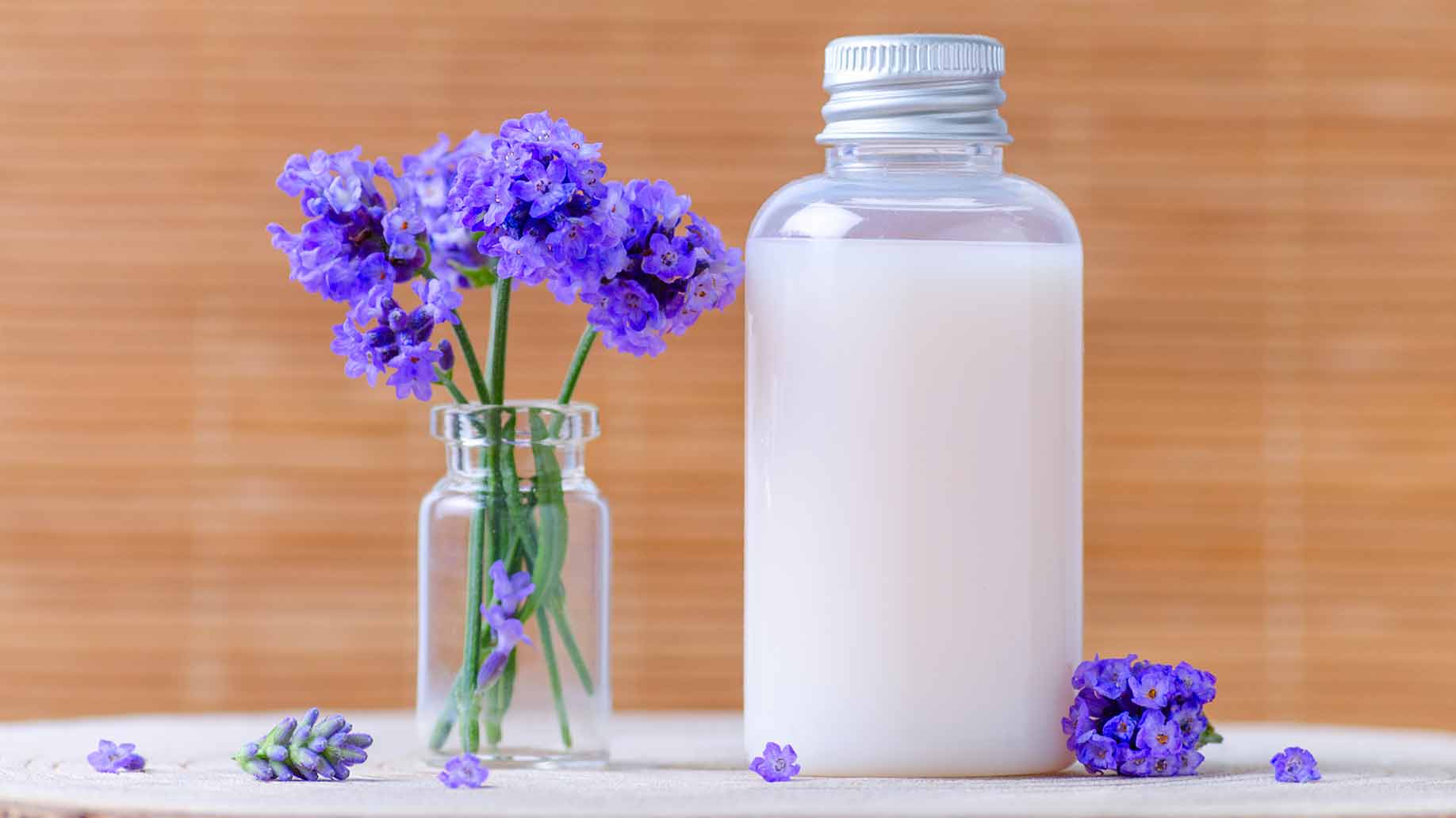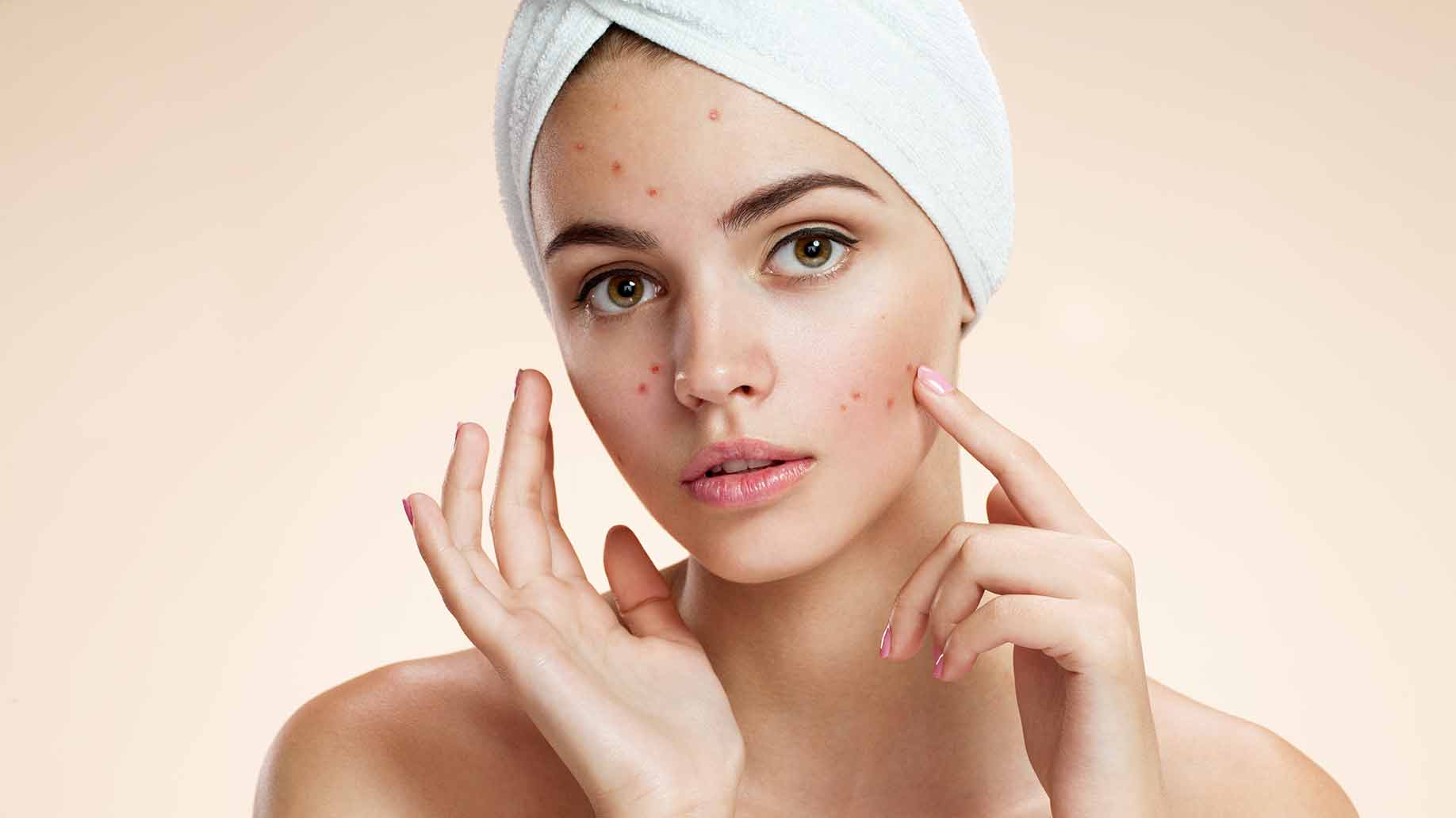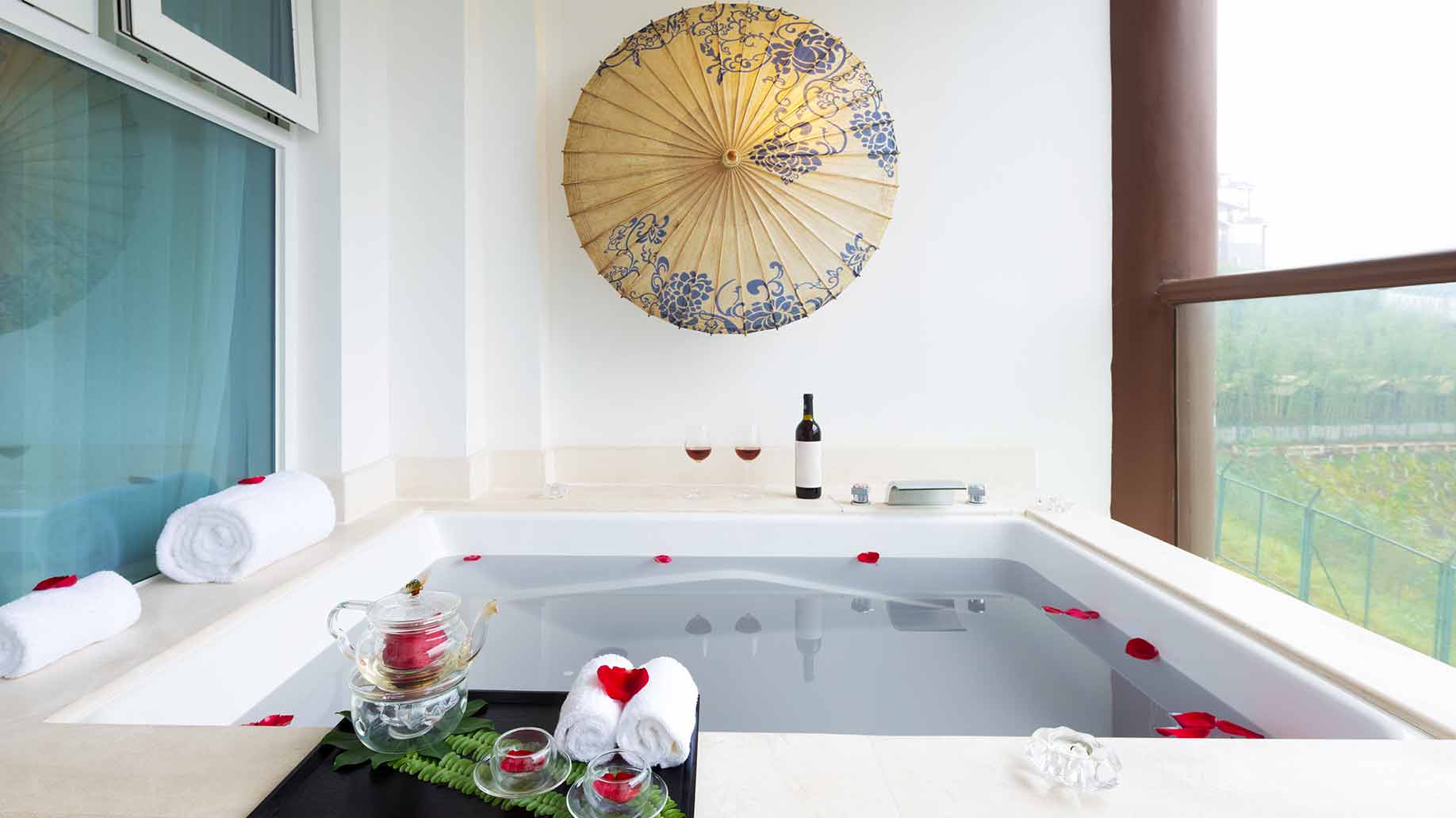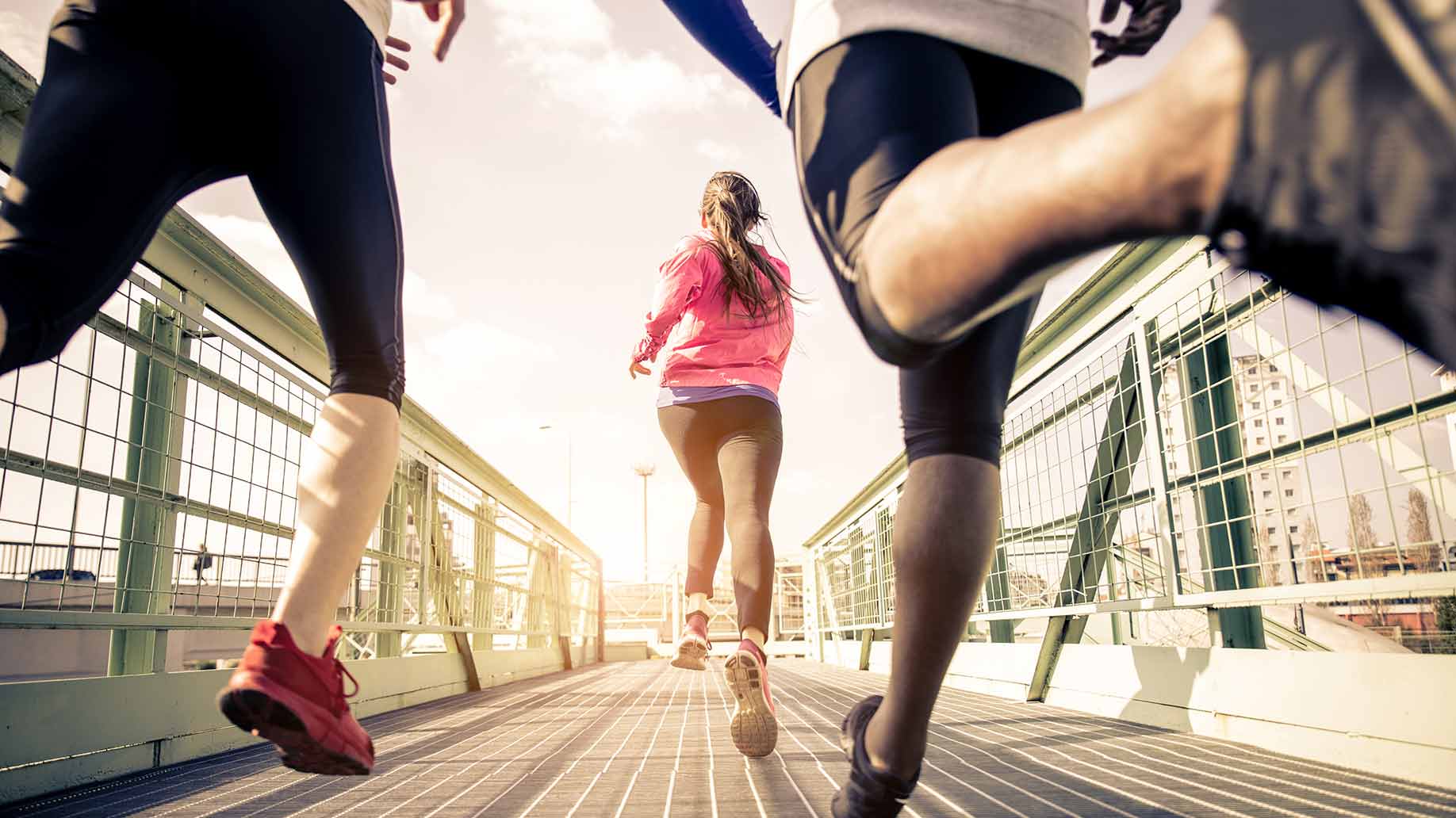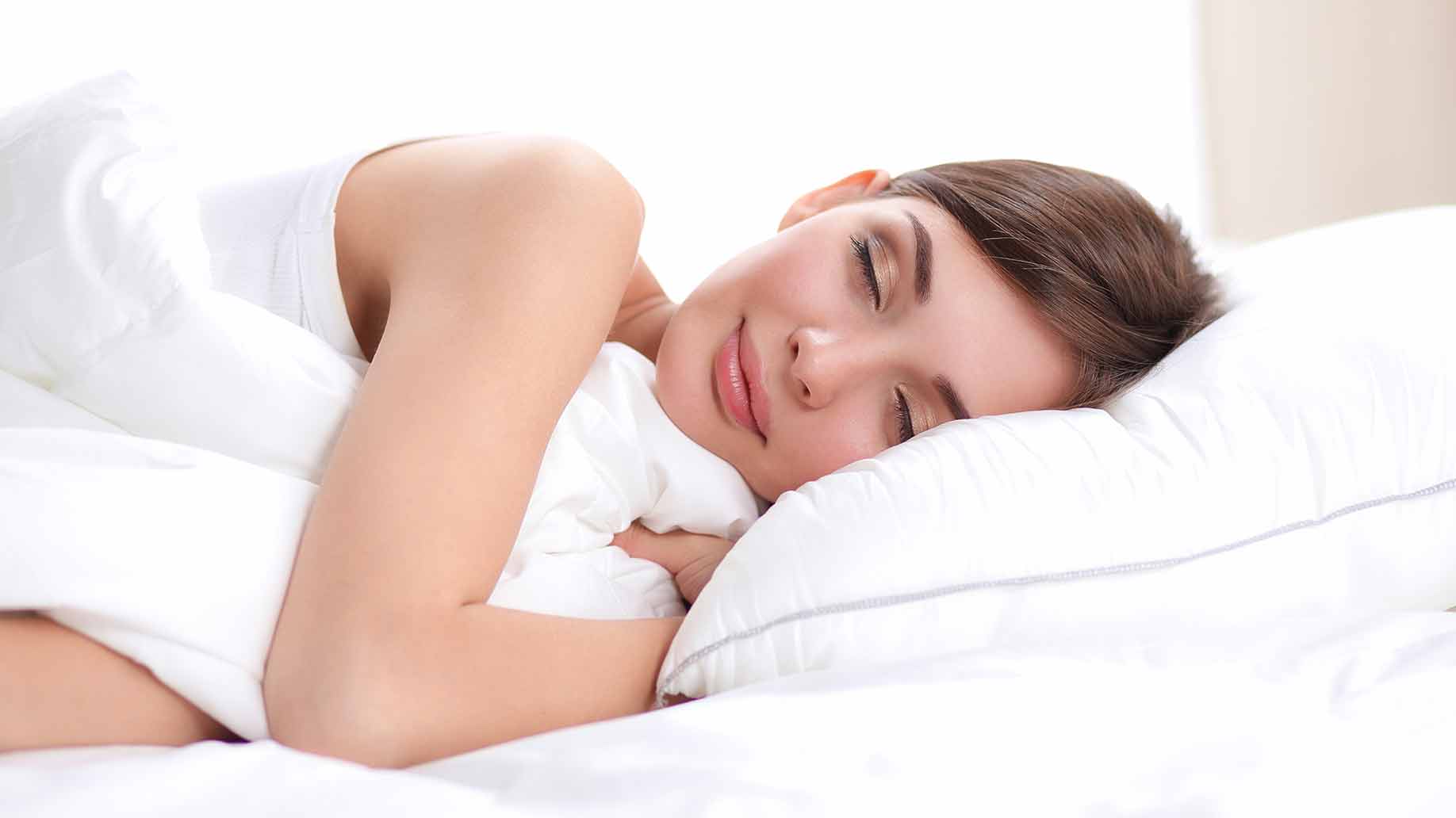
According to a survey conducted by the CDC, 35% of American adults reported getting less than the recommended 7-8 hours of sleep a night and 40% reported falling asleep unintentionally during the day in the preceding month.
Lack of sleep can lead to a variety of negative outcomes, including poor work performance, serious health problems and greater risk of accidents. Yet hectic modern lifestyles, technology and stress means many of us aren’t getting the sleep we need for optimal mental and physical health.
Health Benefits of Sleep
1. Lowers Risk of Heart Disease & Stroke
As you sleep, your blood pressure, heart rate and respiratory rate rise and fall. This process may be important for cardiovascular health.
A meta-analysis of 17 studies involving 517,440 participants concluded that people who slept 7-8 hours a night had the lowest risk for coronary heart disease and also showed an 11% increase in risk for those who got only 6 hours of sleep.
Another study of 86,329 postmenopausal women found that those with insomnia had a 38% greater risk of coronary heart disease and a 27% greater risk for cardiovascular disease.
2. Lowers Risk of Obesity & Diabetes
Sleep loss is a risk factor for obesity and diabetes. It causes an increase in the hunger-promoting hormone, ghrelin along with a decrease in the satiety hormone, leptin. It also decreases insulin sensitivity.
A study of 593 patients with a recent diagnosis of type 2 diabetes looked at the impact of sleep debt on weight and health. Sleep debt was defined as the difference between the amount of sleep on week nights and on weekends. Those who didn’t get enough sleep during the week were 72% more likely to be obese. For every 30 minutes of sleep debt, the risk of obesity increased by 18% and the risk of insulin resistance increased by 41%.
3. Lowers Risk of Alzheimer’s Disease
In Alzheimer’s disease, beta-amyloid protein fragments accumulate to form hard plaques between neurons in the brain. Research has shown that sleep deprivation increases amyloid plaque deposition.
In a Swedish longitudinal study, researchers followed 1,574 men from the age of 50 until the age of 90. At ages 50 and 70, they were asked whether they had trouble falling asleep, woke up during the early hours, or took sleeping pills. Cases of dementia and Alzheimer’s were noted from the participants’ medical records. Those who reported sleep disturbances had a 33% higher risk of developing dementia and a 51% higher risk for Alzheimer’s disease.
4. Lowers Risk of Depression
A number of studies have shown that people with insomnia have a greater risk of developing depression. After the onset of depression, insomnia seems to perpetuate it. Interestingly, when patients with insomnia and depression are given cognitive behavioral therapy for insomnia (CBTI), their depression symptoms tend to improve.
In one randomized controlled trial of 37 patients with insomnia and depression, half of those who received CBTI were in clinical remission for both insomnia and depression after 8 weeks. None of the patients from the control group, who received treatment as usual, were in remission for insomnia and only one was in remission for depression.
5. Lowers Risk of Premature Death
A meta-analysis pooled data from 16 studies from the USA, UK, European and East Asian countries. It included 1,382,999 male and female participants who had filled out questionnaires about sleep duration. They were followed up to 25 years and 112,566 deaths were recorded. Those who slept less than 7 hours a night were 12% more likely to experience a premature death than those who consistently got 7-8 hours of sleep. These results were comparable between men and women and did not depend on age, socioeconomic status or geographic location.
7 Ways to Improve Your Quantity & Quality of Sleep
1. Optimize Your Bedroom for Sleep
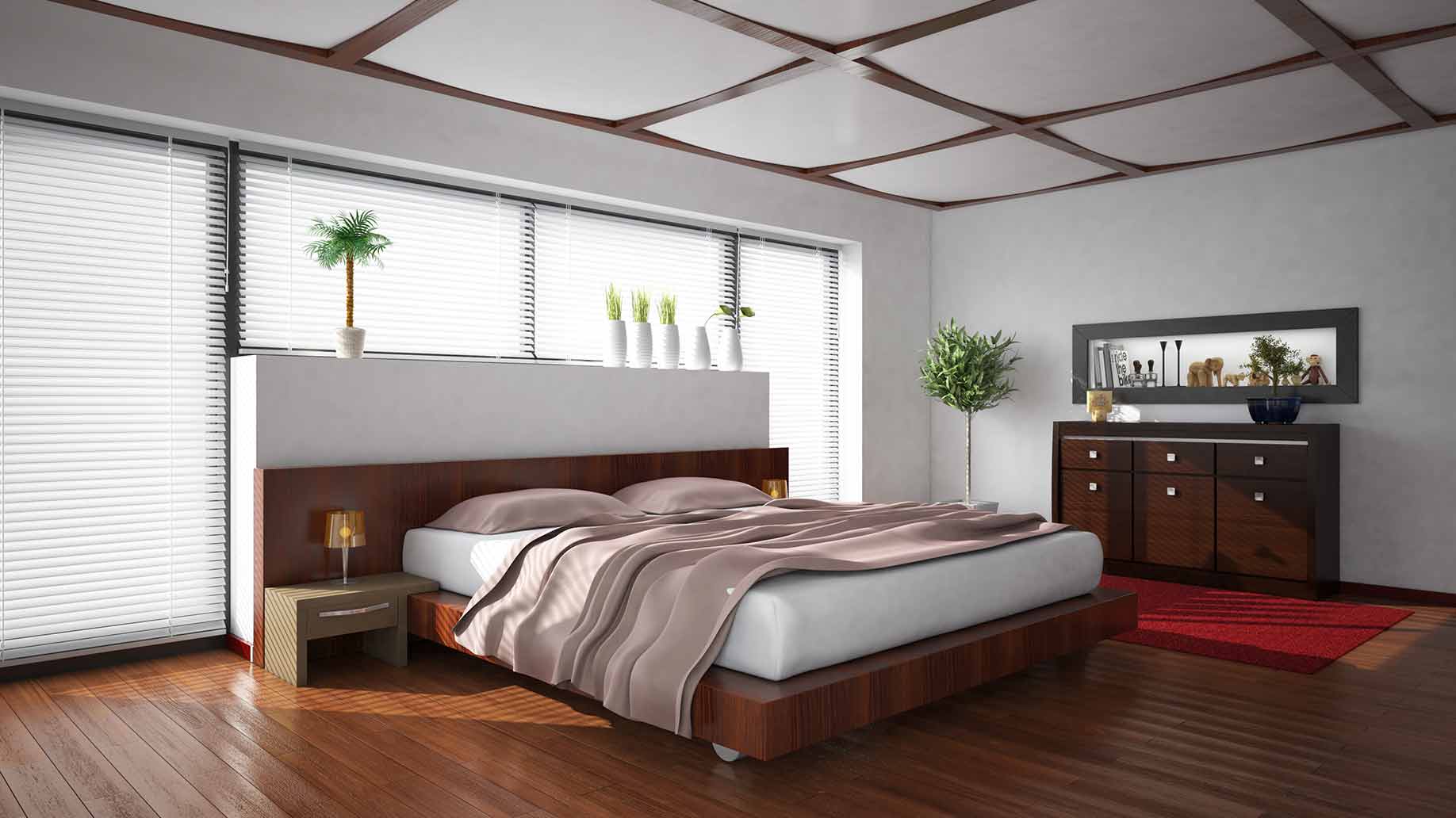
The right environment can help you fall asleep faster and wake less often during the night. If you have trouble sleeping, take steps to remedy anything that stimulates you, makes you uncomfortable or interferes with sleep.
Noise
Your sleeping brain continues to register and process sound. Noise can disturb your sleep, wake you up or cause you to switch from deep sleep to light sleep.
Nocturnal noise can also cause adverse physical reactions during sleep such as raise your blood pressure and increase levels of stress hormones.
Method: If you live on a busy city street and find it hard to sleep due to traffic and other environmental noise, invest in a white noise machine. The constant ambient sound helps to mask disturbing noises. Earplugs and an eye mask can also help you fall into a deeper sleep and stay asleep.
Recommended:
Light
Exposure to light at night can reset the body’s clock and delay sleep. Make sure your bedroom is as dark as possible. If streetlight comes through your curtains, put up blackout shades or blinds. Block any bright LED displays in your room before you go to bed. Use dim night lights in the hallway and bathroom so you don’t have to switch on ceiling lights if nature calls during the night.
Recommended:
Temperature
Your body temperature naturally decreases during sleep. If your bedroom is too hot, it can affect the quantity and quality of your sleep.
Method: Research suggests that a cool room between 60-65 degrees F (16 -19 C) will help keep your body at the right sleeping temperature. Be sure the covers you sleep under are the right thickness to keep you comfortable and not too warm. On hot summer nights, cool the room with a ceiling fan or a fan placed in front of an open window.
2. Say Goodnight to Electronic Screens
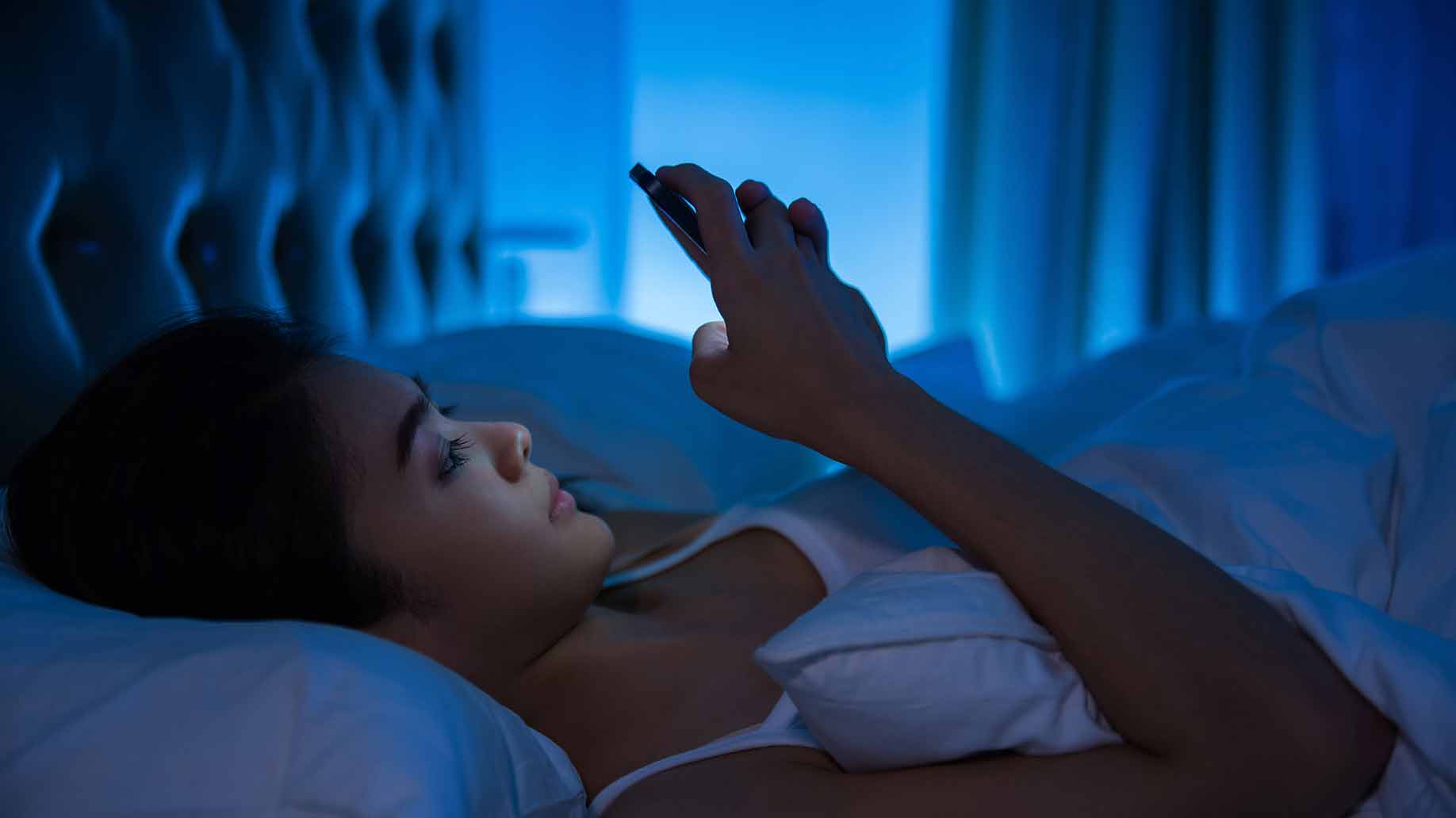
The hormone melatonin regulates the sleep cycle and your biological clock. Under natural conditions, it begins to be released a few hours before bedtime in response to dim light or darkness.
The screens on electronic devices such as televisions, computers, smartphones and tablets emit short wavelength blue light which mimics the effects of daylight. Exposure to this light suppresses melatonin production, disrupting normal sleep patterns.
A study published in Sleep Medicine compared the effects of reading from an iPad or a print book. Participants slept in their own beds, wired up to a device called a polysomnogram which monitored their brain activity. They read from either a book or an iPad for 30-minutes before bedtime and filled in a sleepiness questionnaire before turning out the light. Reading from the iPad decreased reported sleepiness. It also delayed slow-wave deep sleep by approximately 30 minutes, and reduced slow wave activity throughout the night.
An internet-based study examined the correlation between smartphone use and the quality of sleep. Participants downloaded an app which continuously measured their screen-time over a 30-day period. They also filled in a survey about their sleep habits including their usual bedtime. Longer overall screen-time were associated with shorter sleep time and worse sleep-efficiency (the total time spent asleep compared to the total time spent in bed). Longer average screen-times during the hour before and after their usual bedtime were associated with taking more time to fall asleep, poor sleep quality and decreased sleep efficiency.
Researchers have been developing blue-light blocking devices designed to improve sleep. In one experiment subjects wore blue-light shield glasses or clear glasses while using a tablet 2 hours before sleep. Those wearing the blue-light shield produced significantly more melatonin, felt sleepier, fell asleep faster and had better sleep efficiency than the control group.
Blue-light blocking glasses and lightbulbs are available to purchase online. More recently smartphone apps have been designed to counteract the negative effects of blue light. These apps track local sunset times and automatically apply a red filter to the screen at night.
Method: To trigger melatonin production, keep house lighting dim after sunset. If you use electronic devices at night, invest in blue-light blocking technology. Aim to stop using all devices an hour before bedtime – this is a time for relaxation, not stimulation.
Recommended:
3. Exercise During the Day

Exercise can improve both the quality and quantity of sleep. It helps to reset the body’s clock, increasing daytime alertness and sleepiness at night. It also promotes sleep by naturally reducing stress and anxiety. Research has shown that exercise increases both total sleep time and the amount of deep, slow wave sleep.
The National Sleep Foundation conducted a poll on sleep and exercise using a sample of 1,000 American adults. Participants were categorized as vigorous, moderate and light exercisers or non-exercisers. More than three-fourths of exercisers said their sleep quality was good in the past 2 weeks, compared to slightly more than half the non-exercisers. More than two-thirds of vigorous exercisers said they rarely or never had symptoms associated with insomnia. In contrast, half of the non-exercisers said they woke up during the night and nearly a fourth had trouble falling asleep almost every night.
A study published in JAMA looked at the effects of exercise on sleep in older adults. Subjects aged 50-76 who reported moderate sleep complaints were either assigned to a 16-week community-based exercise program or put on a waiting list. The exercise group did four 30-minute sessions a week of moderate activity such as low-impact aerobics or brisk walking. Before and after the exercise program, participants completed a standard questionnaire called the Pittsburgh Sleep Quality Index (PSQI). Compared with the control group, the exercise group showed significant improvement in overall sleep scores as well as time taken to fall asleep, sleep quality and sleep duration.
In a study published in Sleep Medicine, 19 sedentary adults with chronic insomnia were put on a 6-month aerobic exercise program. They were asked to keep sleep diaries and fill in quality-of-life questionnaires. Their brain-wave activity during sleep were monitored with polysomnography before and after the exercise regime.
Long-term moderate exercise led to a significant decrease in the time it took to fall asleep and incidents of waking during the night. It also significantly increased sleep efficiency. Furthermore, the participants showed a decrease in measures of anxiety and depression. Those who exercised in the morning experienced the same benefits as those who exercised in the late afternoon.
Method: Aim for 30-minutes of exercise that speeds up your heart rate 4-5 times a week. Examples include brisk walking, jogging, biking, hill-climbing, swimming or dancing. When possible, exercise outdoors. Exposure to natural daylight will help to maintain the proper sleep/wake cycle. Don’t expect immediate results. Research suggests it may take up to 16-weeks of regular exercise to improve sleep quality on a nightly basis.
Recommended:
4. Set a Caffeine & Alcohol Curfew
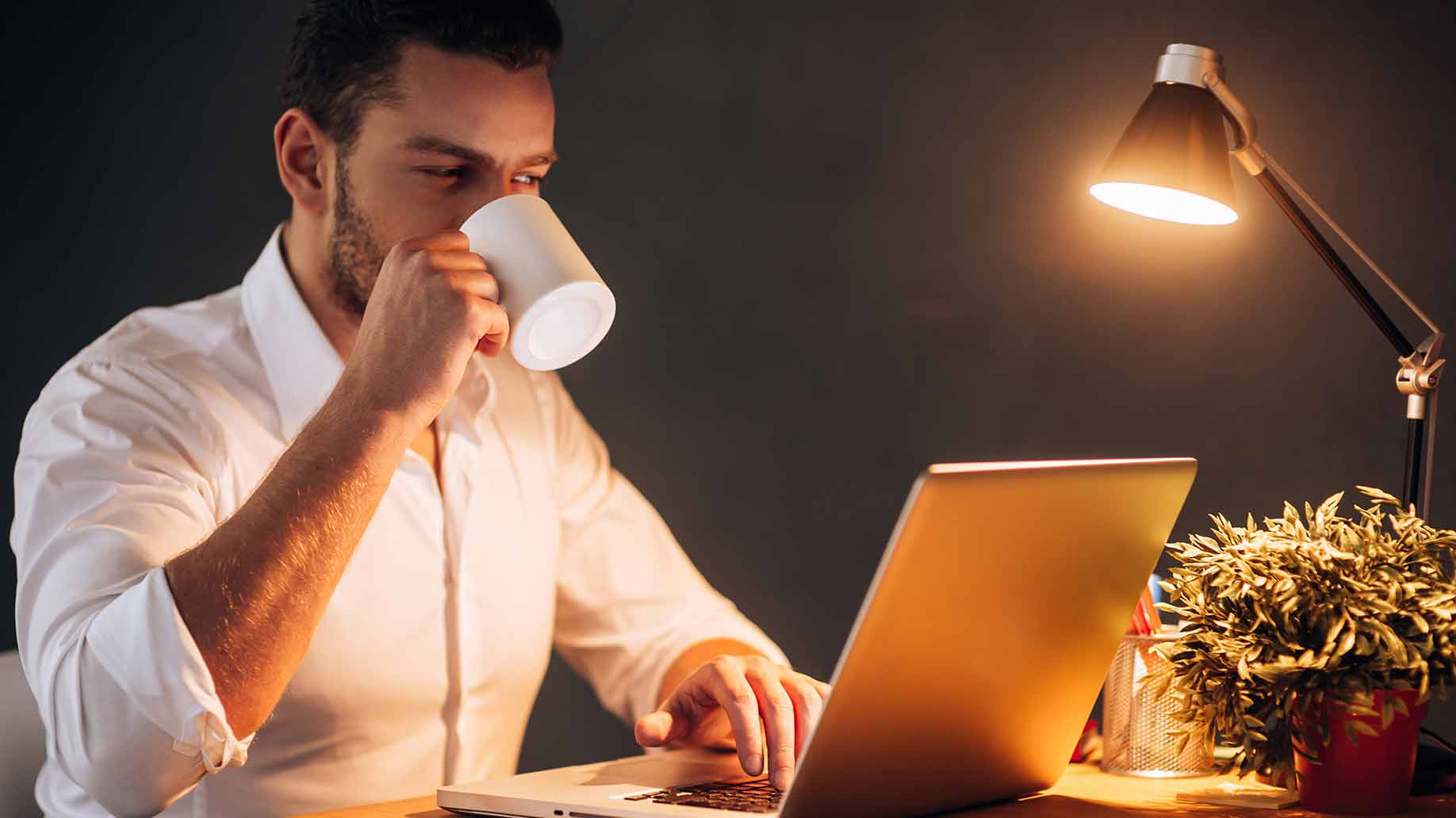
Both caffeine and alcohol can adversely affect your sleep, even if consumed 6 hours before bedtime. If you want to sleep soundly through the night, don’t drink caffeine after 5 PM and limit yourself to one small alcoholic beverage.
Caffeine
People drink caffeinated beverages to help them stay awake and alert, so it’s no surprise that drinking caffeine at night can lead to insomnia. Caffeine can increase the time it takes to fall asleep and the number of episodes of nighttime wakefulness. It also reduces slow wave sleep in the early part of the sleep cycle and REM sleep in the later part.
In a randomized controlled trial published in the Journal of Clinical Sleep Medicine, participants were given either a pill containing 400 mg of caffeine or a placebo pill at bedtime, 3 hours prior to bedtime, or 6 hours prior to bedtime. They went to bed wearing sleep-monitoring headbands. Caffeine taken at bedtime or 3 hours before reduced total sleep time by about an hour compared to the placebo and significantly increased the time it took to fall asleep. Taken 6 hours before bedtime, caffeine reduced sleep time by about 40 minutes and doubled the time it took to fall asleep.
Alcohol
Many people have a night cap before bedtime, and in fact, alcohol does decrease the time it takes to fall asleep and increases deep slow-wave sleep during the first half of the night. However, it also increases wakefulness in the second half of the night. Furthermore, it delays the onset of REM sleep and, at moderate and high doses, reduces the total amount of REM sleep. REM is the stage at which most dreams occur. It is thought to play a role in the consolidation of memories.
In a study published in the Journal of Clinical Psychopharmacology, healthy middle-aged men were given a moderate dose of alcohol 6 hours before bedtime. Total sleep time, sleep efficiency, stage 1 sleep and REM sleep were all reduced compared to a control condition where they drank mineral water. Participants also experienced twice as much wakefulness in the second half of the night. The intriguing aspect of this study is that, by the time they went to bed, all of the subjects had a breathalyzer reading of zero. Drinking alcohol disrupted their sleep even after it had been eliminated from their bodies.
5. Soak in a Warm Bath Before Bed
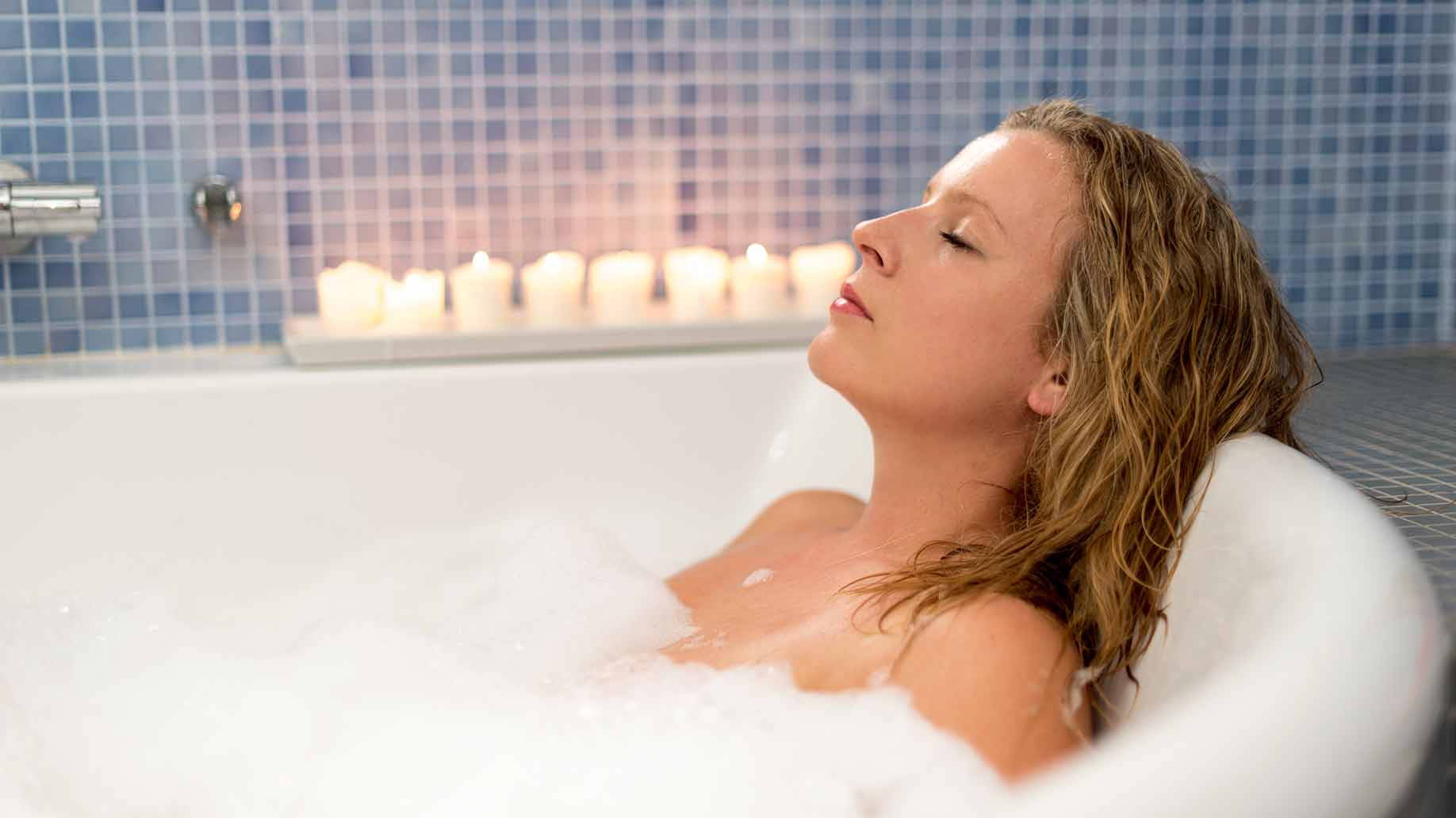
Your body temperature naturally falls at night. The rapid loss of heat helps to trigger the onset of sleep and increases the amount of deep, slow-wave sleep. If you raise your temperature with a hot bath about 2 hours before bedtime, the cool-down period will help you to drop off more quickly after going to bed and sleep more soundly throughout the night.
In a study published in Chronobiology International, subjects lived in a laboratory and were allowed to choose their own bedtimes and wake-up times. Their core body temperature were monitored and EEG sensors attached to the scalp recorded the time of sleep onset. The closer the maximum rate of decline in body temperature occurred to either bedtime or sleep onset, the less wakefulness they was during the first hour of sleep.
In a small study, researchers tested the effects of baths on sleep. Six female volunteers sat in baths of warm or cool water for 90 minutes. The body temperature of those in the warm baths rose by an average of 1.8 degrees C. There were no body temperature changes for those in the cool baths. The participants’ sleep were monitored before and after the baths using EEG sensors. There were no changes in sleep for those who took cool baths. After warm baths, there were significant increases in bedtime sleepiness, slow wave sleep and deep sleep.
A systematic review analyzed studies on the effects of body temperature on sleep quality in elderly insomniacs. It concluded that passive body heating such as a 30-minute warm bath in the evening could raise body temperature and increase deep, slow-wave sleep. The elderly participants reported that they were able to sleep more quickly and got better sleep after a warm bath.
Method: Run a warm bath 2 hours before your usual bedtime and soak for 30 minutes. To enhance your relaxation, add a few drops of lavender essential oil to the water. There is a growing body of evidence that inhaling the aroma of lavender improves quality of sleep.
Recommended:
6. Relax
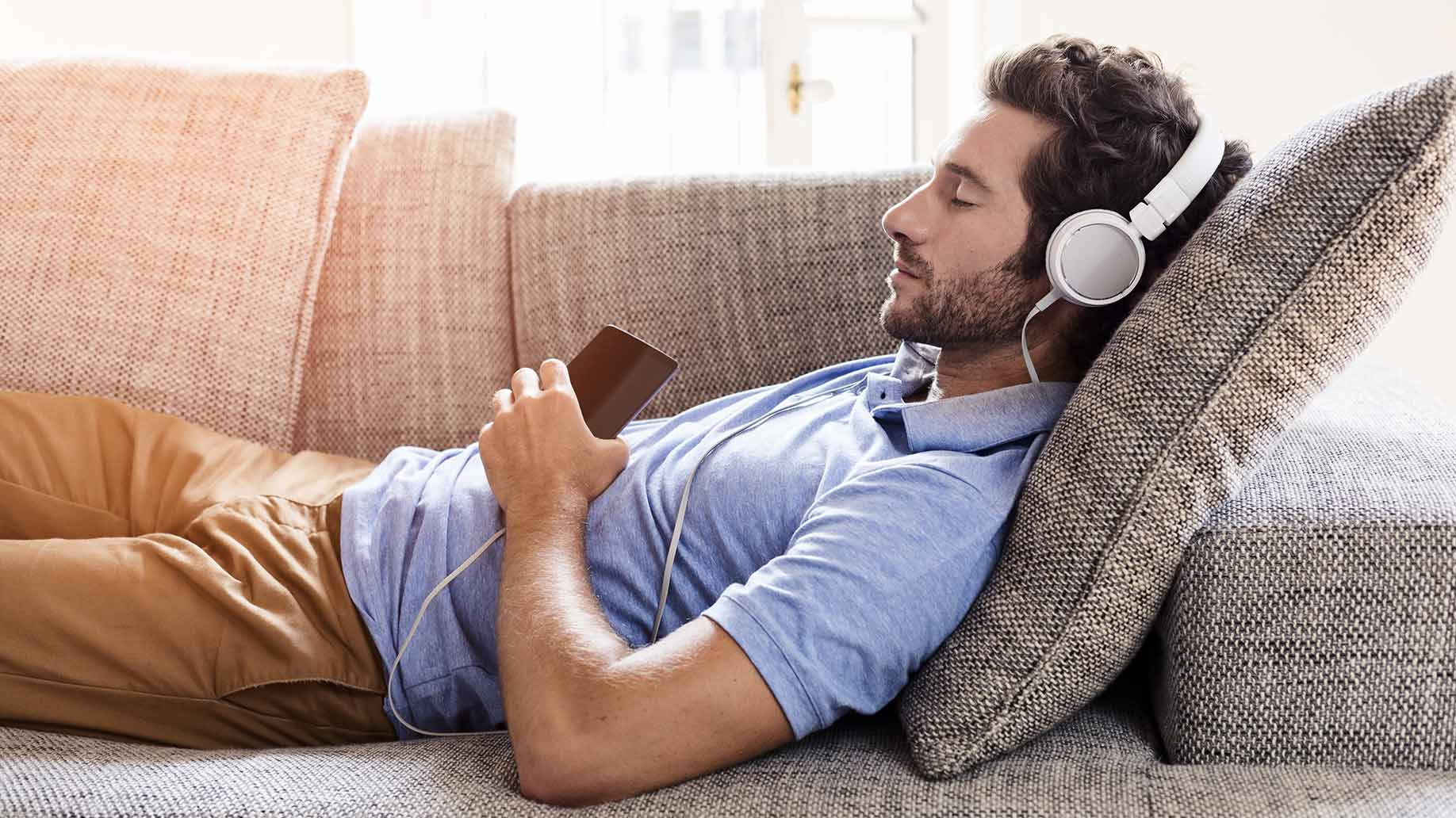
Stress and anxiety are common causes of insomnia. Anxious thoughts and worries can trigger the release of stress-hormones such as cortisol and adrenaline. These hormones prepare the mind and body for ‘fight or flight’ by increasing arousal and alertness.
People who lose sleep due to anxiety can become caught in a vicious cycle because insufficient sleep makes them less able to cope with stressful situations and more prone to develop stress-related disorders. If you are unable to sleep due to stress, relaxation techniques that can slow a racing heart and distract you from your worries can help you fall asleep more quickly and increase your quality of sleep.
Music-Assisted Relaxation
Relaxing music can decrease anxiety, heart and respiratory rate and blood pressure. A meta-analysis of five clinical trials with a total of 170 participants found that music had a significant effect on the sleep quality of patients with sleep complaints.
A study of 94 young adults with sleep problems compared the effect of listening to classical music or listening to an audiobook for 45 minutes before bedtime. Music improved sleep quality and led to a decrease in depressive symptoms. The audiobook had no effect on sleep. Choose soft, slow music and listen in a dim room before going to bed or while lying in bed in the dark.
Progressive Muscle Relaxation
Muscle tension is part of the ‘fight or flight’ response associated with stress. Progressive muscle relaxation is a therapeutic technique often taught to patients with anxiety or those who have poor sleep quality due to illness. It involves tensing and relaxing one muscle group at a time and can be performed while lying in bed in the dark.
Method: Take a deep breath and curl your toes downward. Tense them for a few seconds, then relax them as you breathe out. Take another deep breath and pull your toes toward you to tighten your calf muscles. Hold for a few seconds, breathe out and relax.
Move up your body, tensing and releasing muscle groups as you inhale and exhale. Squeeze your thighs, clench your fists, tighten your biceps, squeeze your buttocks together, pull in your abdomen, tighten your chest, raise your shoulders, stretch your jaw, clench your eyes shut and raise your eyebrows.
Yoga
Yoga lowers stress levels, calms the mind and relieves muscle tension. A study of older adults with insomnia found that yoga improved their sleep quality and sleep efficiency, reduced feelings of stress, depression and anxiety.
A randomized controlled trial involving staff nurses in a busy hospital found that yoga improved their sleep quality and reduced work-related stress.
Method: You can learn gentle yoga poses to help you sleep from online videos or DVDs and incorporate them into your wind-down bedtime routine. Many yoga poses can even be performed on your bed. Doing yoga while playing soothing music will allow you to benefit from both relaxation methods simultaneously.
Recommended:
7. Nap Efficiently
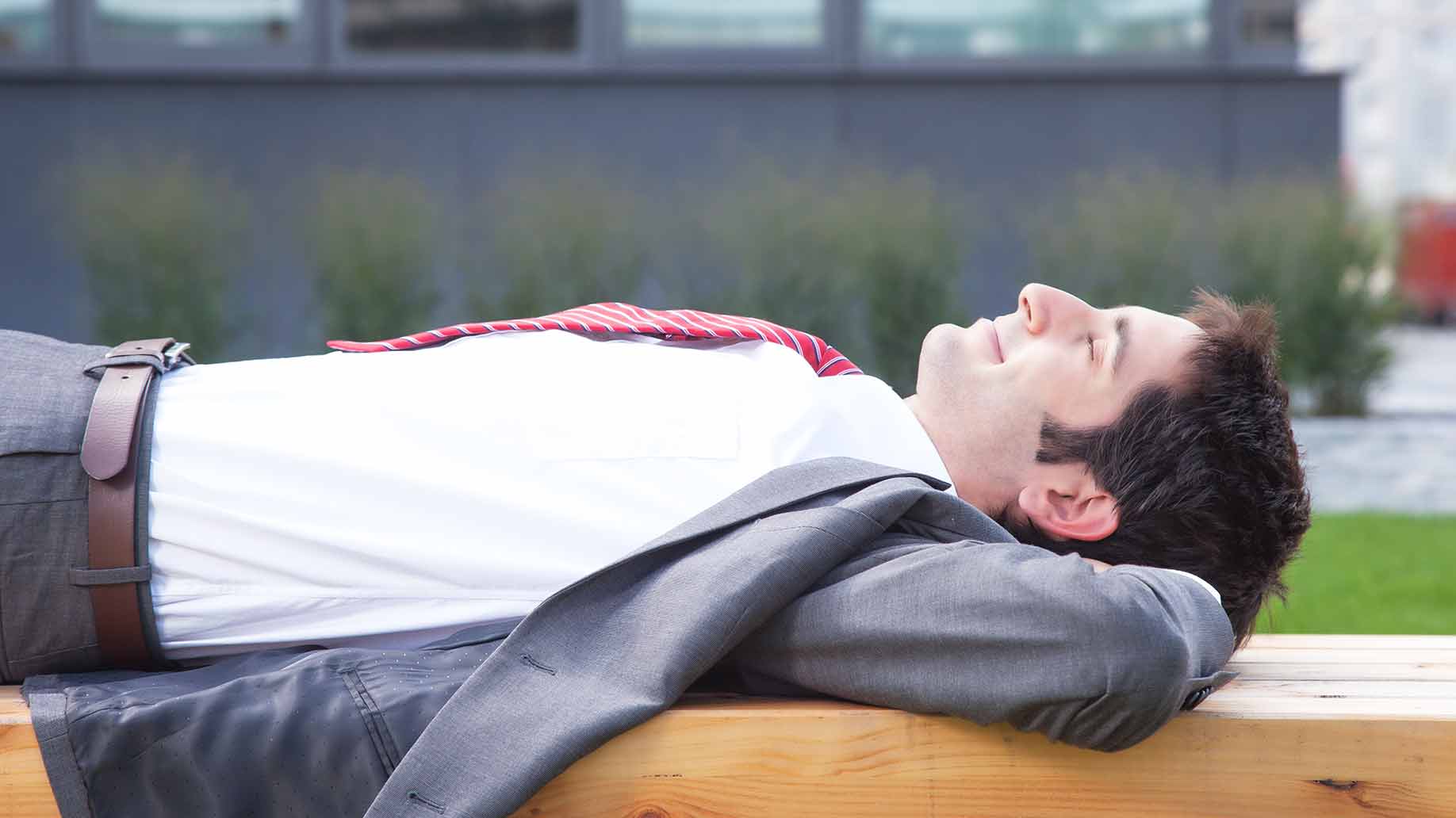
A nap can help you become more energetic, productive and creative. It can also decrease work-related stress and prevent burnout. The most beneficial type of nap is one in which you fall asleep quickly, sleep well for a brief time and wake up feeling alert and reinvigorated.
Nap in the Afternoon
Most people are naturally a bit drowsy in the afternoon between about 1:00-3:00 p.m. and find this is a good time to nap. There’s a biological reason for this tendency. The brain maintains a balance between the sleep drive and the circadian alerting system. The sleep drive increases throughout the day, but the alerting signal opposes it, keeping us awake. During the afternoon, the alerting signal struggles to compete with the strength of the sleep drive and we start to feel tired.
Researchers performed identical studies looking at the effects of napping at noon and at 2:00 p.m. In each study, participants who napped for 20 minutes were compared to a no-nap group. Both groups completed sleepiness and fatigue questionnaires and took mental performance tests. Brain activity and arousal levels were analyzed with an EEG scan. The noon-time nap helped to reduce sleepiness, but had no effect on test performance. The mid-afternoon nap showed an increase in both alertness and objective performance.
Aim For a 10-Minute Nap
There are five stages of sleep. Stage 1 is light sleep, from which we can be easily awakened. In stage 2 our brain waves slow down. Stages 3 and 4 are deep sleep, characterized by very slow delta brain waves. When you first fall asleep, stages one and two each last about 10 minutes. You can wake up from stage 1 feeling energized and alert. It takes a bit longer to recover from stage 2. If you sleep for more than 20 minutes and are woken from deep sleep, you’re likely to feeling sluggish and disoriented until brain wave activity speeds up again.
In one study, participants were restricted to 4-7 hours of sleep during the night. The following day they took either no nap, a 10-minute nap or a 30-minute nap. Their alertness and cognitive performance was measured before napping and at intervals of 5, 35 and 60 minutes after the naps. Those in the no-nap group showed either no change or a decrease in alertness and performance. Participants who took a 10-minute nap showed immediate improvement which was sustained across all three testing periods. After a 30-minute nap, subjects displayed signs of sleep inertia. Measures of alertness and performance initially declined, but began to recover by the end of the 60-minute test. Another study which simulated nightshift work also found that a 10-minute nap was more beneficial than a 30-minute nap.
Method: Plan to nap for 10 minutes at the same time and place every day. It may be difficult to fall asleep at first, but will become easier as your system adjusts to the routine.
If you take an afternoon nap in your car or a break room at work, consider setting the alarm on your smartphone and sleeping with headphones on. This will help block out noise. Wearing an eye mask will block out light and signal to others that you are intentionally napping.
Recommended:
Final Word
If you often have difficulty getting to sleep or staying asleep, try these methods one at a time or in combination to find the ones that work best for you.
If you suffer from chronic insomnia, see a medical professional to rule out any underlying condition that may be causing it. Prescription sleeping pills can have unwanted side effects, so ask your doctor about alternatives such as cognitive behavioral therapy.


